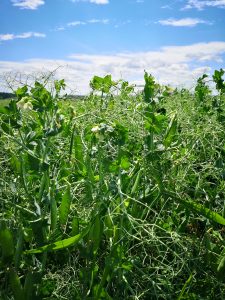Growing Plant Protein Potential in Atlantic Canada
Alternative protein, and specifically plant based protein, is one of the largest growth sectors that global agriculture has experienced in the last decade. Plant based proteins are food products made from plants such as grains, legumes, nuts and fungi. Global market demand is projected to reach $250 billion CAD by 2035. As the call for plant protein rises, Eastern Canada Oilseeds Development Alliance, Inc. (ECODA) and partners, Dalhousie University Faculty of Agriculture and University of Prince Edward Island, are assessing and investigating Atlantic Canadian growers, producers and exporters in this sector. The initiative is part of a Protein Industries Canada (PIC) Capacity Building project.
Protein crop production is also important for animal feed and this initiative shares interests with the animal agriculture industry. Atlantic Canada’s cropped plant proteins are directed largely toward animal feed and will continue to be an integral part of our agricultural sector. We are collaborating with our animal producer partners and we all have a stake in supporting plant protein.
Over 2022 and 2023, we have been investigating opportunities to:
- identify regional attributes and assets to capitalize on the potential of plant proteins
- grow opportunities to increase economic returns
- improve diversity and sustainability within our food/feed systems
- increase awareness of the sector
- strengthening the plant-based ecosystem of Atlantic Canada
Who We Are

At the helm of Atlantic Plant Protein is the Eastern Canada Oilseeds Development Alliance (ECODA). We’re a private, not-for-profit company focused on supporting oilseed growers, processors, exporters and other partners across Eastern Canada.
We are joined in a steering committee by Dalhousie University in Nova Scotia and the University of Prince Edward Island (UPEI) based in Charlottetown, Prince Edward Island.
Both Dalhousie and UPEI are leading academic institutions in Atlantic Canada, especially in the agriculture and food sector.
The Atlantic Plant Protein Initiative is a Protein Industries Canada (PIC) Capacity Building project
Areas of Interest
It is time to broaden Atlantic Canada’s agricultural global reach and compete on quality while also improving food security, environmental sustainability and health and wellness. This Atlantic Plant Protein initiative is collaborating with communities, businesses, including Indigenous-led, and organizations to find ways in the plant-protein sector to build networks in the supply chain. We’re doing this through three main areas of work:
1. asset mapping
Plant protein asset mapping is used to provide a baseline for investment in the plant protein business in Atlantic Canada. The research collected will help partners to identify, locate and quantify plant protein assets, regional food infrastructures (processing and distributions, food enterprises, markets and retailers), agricultural inputs and non-physical assets (funding and investment opportunities) supporting plant-based proteins in Atlantic Canada.
Coming soon – a national map by Enterprise Machine Intelligence and Learning Initiative (EMILI).
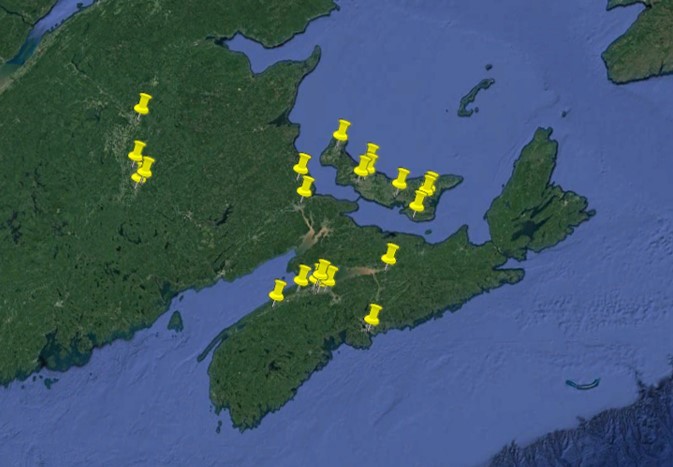
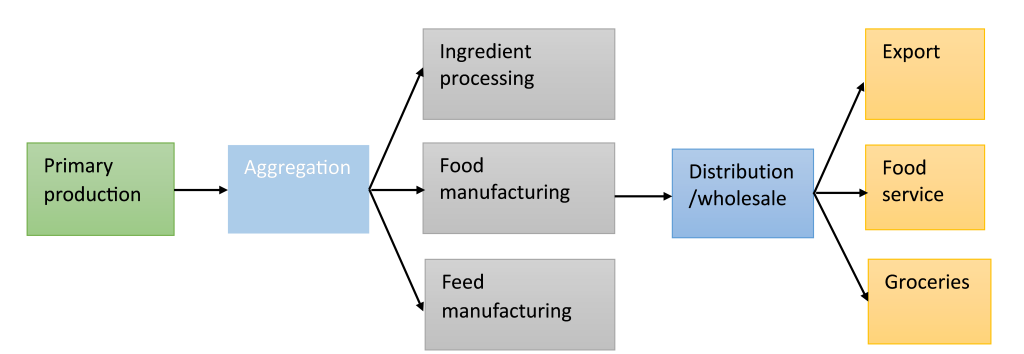
2. value chain analysis
We are consulting with the players in the value chain and interviewing them to identify challenges and opportunities to make this plant protein initiative a success.
Collaboration among the various stakeholders along the value chain is important for:
- food safety
- efficiency
- reducing loss
- waste management
- prices
For a more in-depth look at Dalhousie University’s value chain analysis, click here.
3. food system literacy and awareness about careers in agri-food
How much do you know about your food? Food systems literacy includes not only knowledge of nutrition and healthful food choices but also a broader understanding of food’s social, economic and ecological significance.
Dalhousie University and UPEI are looking at ways to foster new food cultures. This includes several strategies such as improving food systems literacy in youth, particularly around plant proteins. Educating students on the multiple connections we have to food, community and the environment is a good way to help them learn the value of plant based proteins.
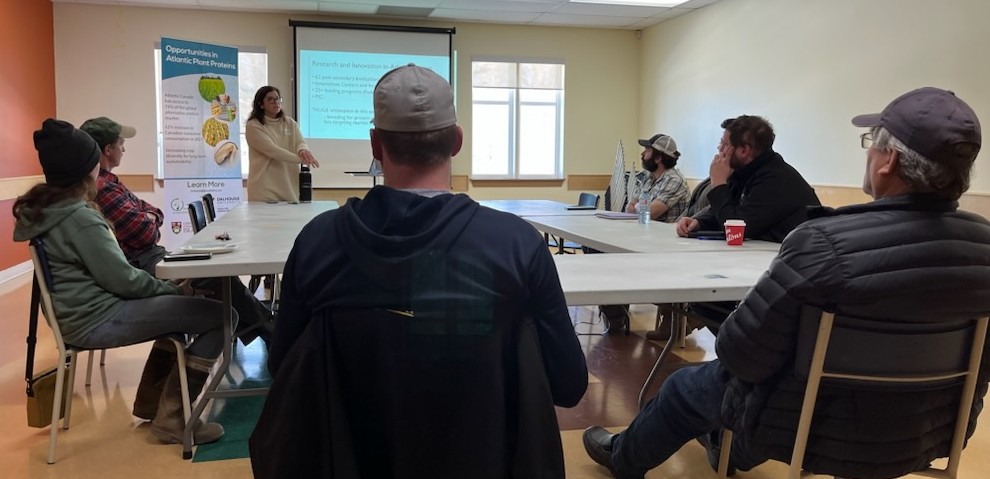
Did you know that 40 per cent of Canadian farmers are set to retire by 2033?
The Atlantic Plant Protein initiative is looking at leadership opportunities for students through academic partnerships to give graduates the skills, knowledge and attitudes needed to advance in the field of plant protein.
Agriculture offers a wide variety of career opportunities from farming to agricultural engineering to agricultural sales. To continue to grow Canada’s agricultural industry, we need people to fill these exciting jobs. It’s a job for life.
Here are some resources including a Teachers’ Guide along with worksheets ready to be used:
Student activity: Bean Sprouting
Student handout: Careers in Food and Agriculture
Student handouts: Give Peas a Chance
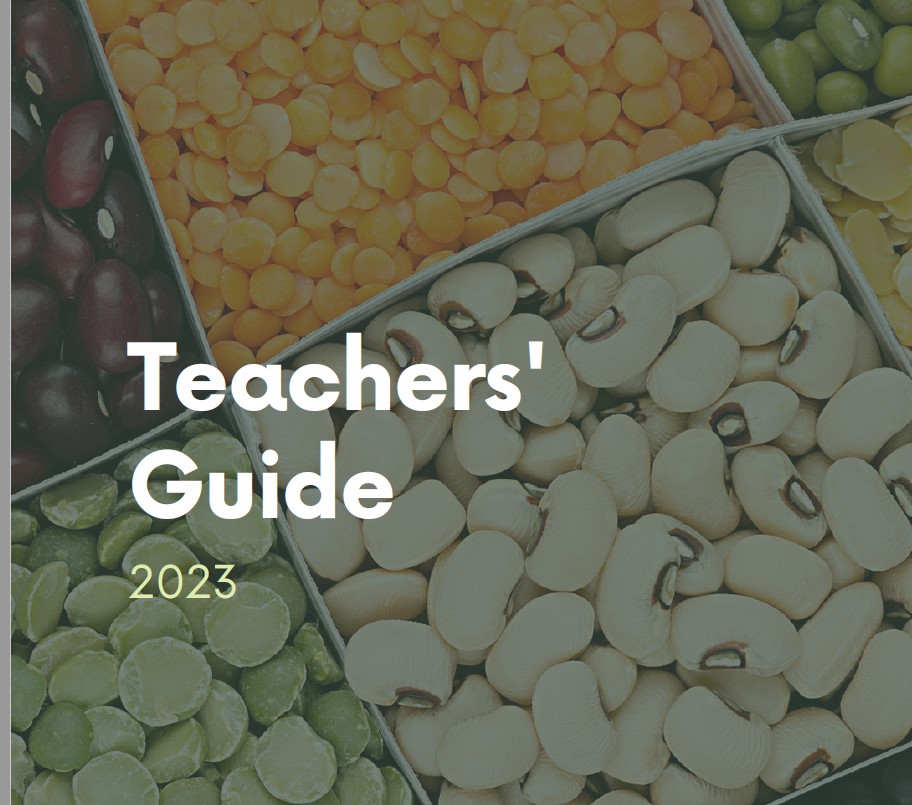
Outcomes
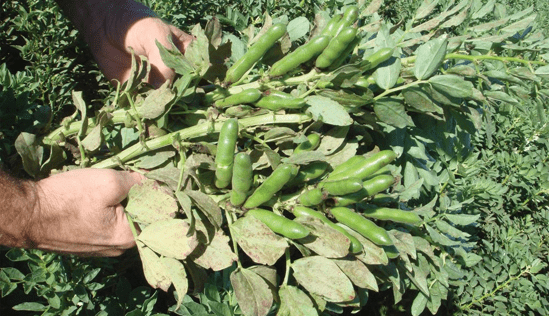
– 20 to 41% protein content
– can be seeded early

– 18 to 22% protein content
– grown successfully in Atlantic Canada
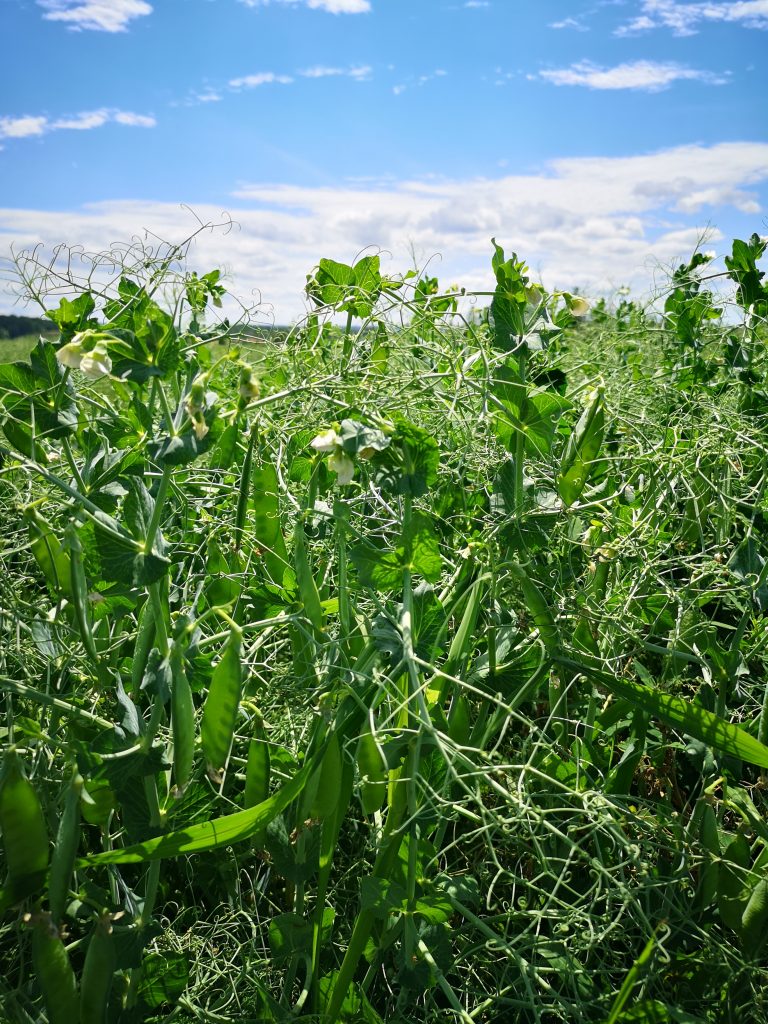
– 18 to 20% protein content
– effective intercrop
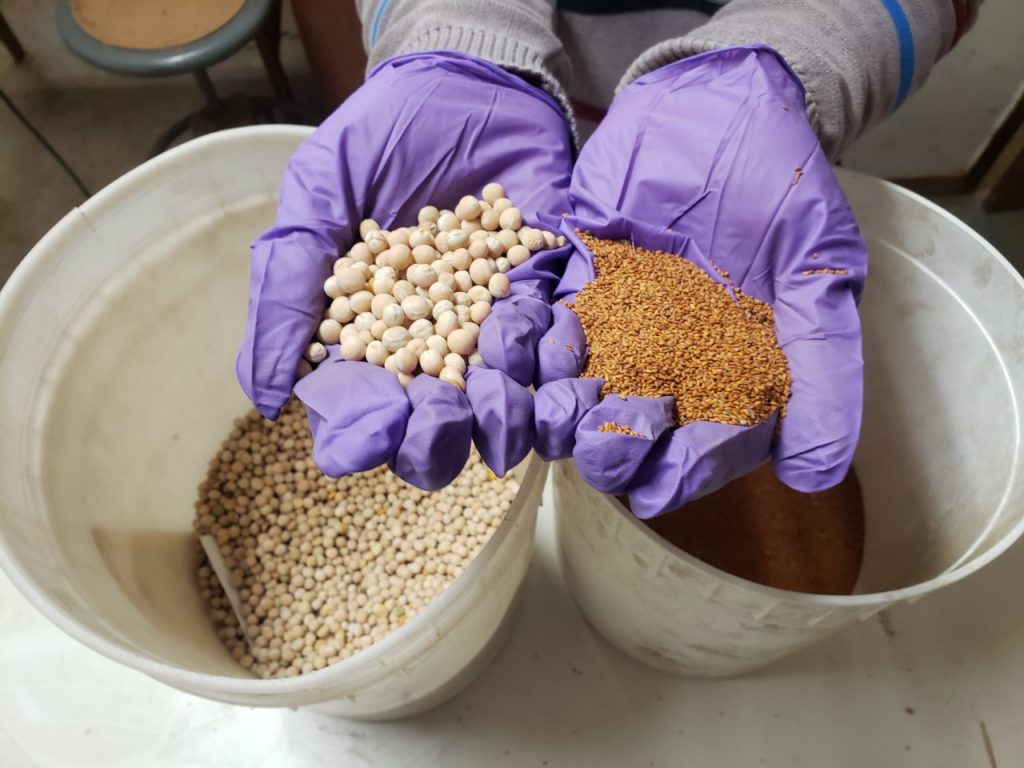
– 35 to 40% protein content
– adapted to Atlantic Canada
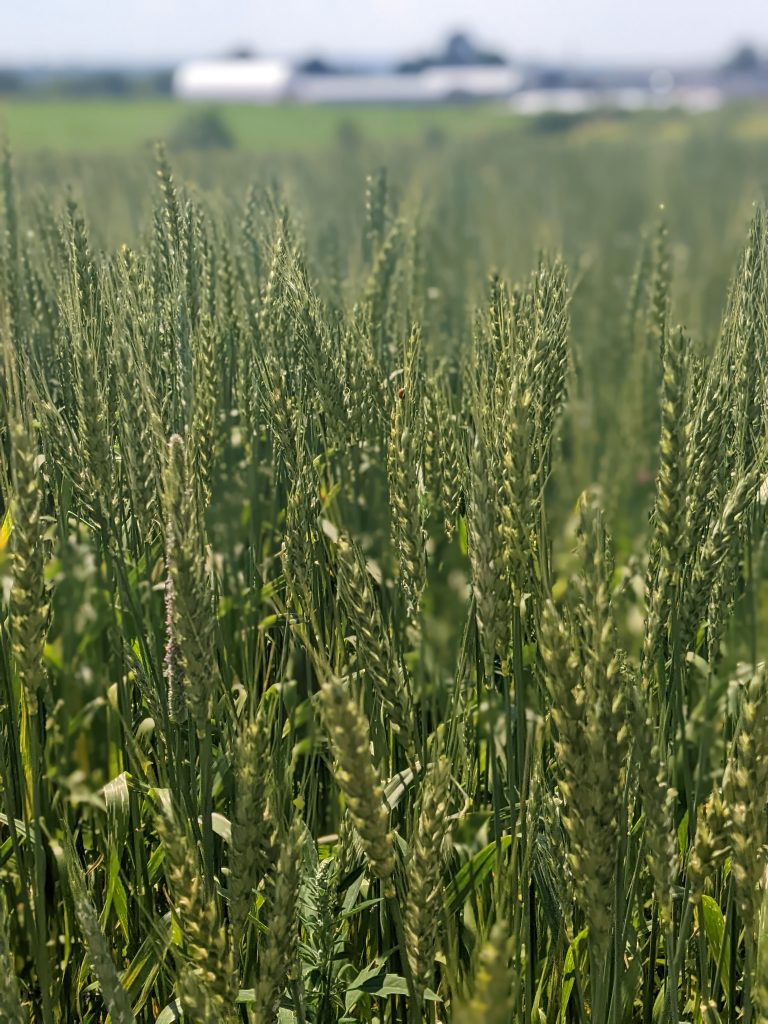
Wheat:
– 11 to 13% protein content
– Atlantic Canadian crop
Atlantic Canada has vast plant based and alternative protein potential. Growing opportunities to increase economic returns, improve diversity and sustainability within our food/feed systems, as well as contribute to innovative agriculture are a few of the initiative’s targets.
Contact Us
Eastern Canada Oilseeds Development Alliance, Inc. (ECODA)
National Bank Tower
134 Kent Street, Suite #302
Charlottetown, PEI Canada
C1A 8R8
Phone: 902-957-0379 or 902-367-4400
Fax: 902-367-4404
E-mail: treasa@ecodainc.ca
Resources
Interactive map: Discover what is growing and where with Agriculture and Agri-Food Canada (AAFC) Annual crop map
Federal report: Plant-based protein market: global and Canadian market analysis
Discovering protein foods: Translating “protein foods” from the new Canada’s Food Guide to consumers: knowledge gaps and recommendations
Agriculture in the Classroom: The national voice for agriculture education in Canada

